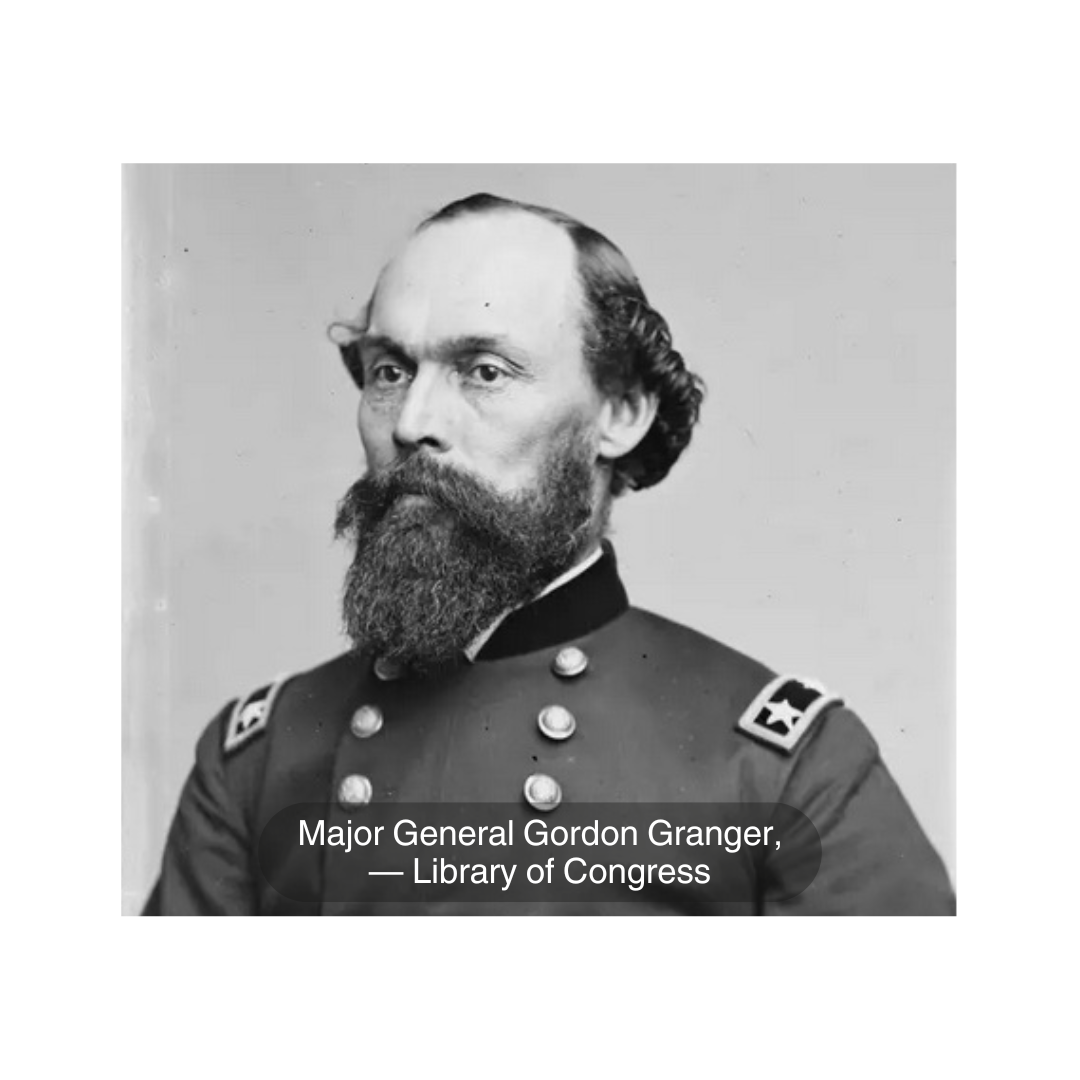The people of Texas are informed that, in accordance with a Proclamation from the
Executive of the United States, all slaves are free. – General Orders, No. 3
Juneteenth and General Orders, No. 3, read on June 19, 1865 announcing that all slaves were free, is one of Galveston’s most important historical moments. US President Abraham Lincoln announced the Emancipation Proclamation on September 22, 1862. Issued under powers granted to the president “as a fit and necessary war measure”, the proclamation declared, “That on the 1st day of January, A.D. 1863, all persons held as slaves within any State or designated part of a State the people whereof shall then be in rebellion against the United States shall be then, thenceforward and forever free…” However, Lincoln’s proclamation would have little impact on Texans at that time due to the small number of Union troops available to enforce it.
Two and a half years later, in June of 1865, more than two thousand Federal soldiers of the 13th Army Corps arrived in Galveston, and with them were Major General Gordon Granger, Commanding Officer, District of Texas. Granger delivered to Galveston General Orders, No. 3. The order informed all Texans that, in accordance with a Proclamation from the Executive of the United States, all slaves were free.
It was from that moment that Juneteenth would be born. Since then, the annual commemoration has grown from local roots to a national celebration featuring parades, readings, processions, and more. In the late 1970s, the Texas Legislature declared Juneteenth a “holiday of significance […], particularly to the blacks of Texas”. Texas was the first state to establish Juneteenth as a state holiday under legislation introduced by freshman Democratic state representative Al Edwards (Houston). The law passed through the Texas Legislature in 1979 and was officially made a state holiday on January 1, 1980. After Texas recognized the date, many states followed suit. Currently, 47 of the 50 U.S. states and the District of Columbia have recognized Juneteenth as either a state holiday or ceremonial holiday, a day of observance.
In 1979, the Galveston Juneteenth Committee under the leadership of former city manager Doug Matthews and Texas Representative Al Edwards initiated an annual Juneteenth Celebration on the lawn of Ashton Villa at 2328 Broadway. The event commemorates the reading of General Orders, No. 3 through prayer, reflections, and community leadership. In 2006, the Juneteenth Committee with the City of Galveston erected a statue of the reading of the order that remains a permanent reminder to residents and visitors of the June 19, 1865 event. The City of Galveston transferred the building and grounds in November 2018 to Galveston Historical Foundation who preserved and managed the property since 1970.





